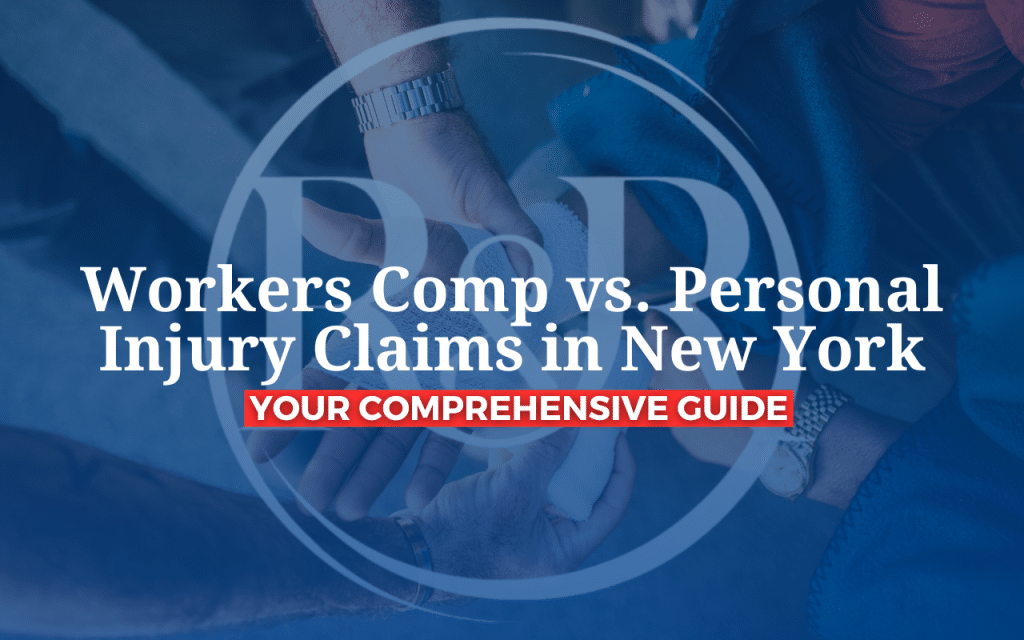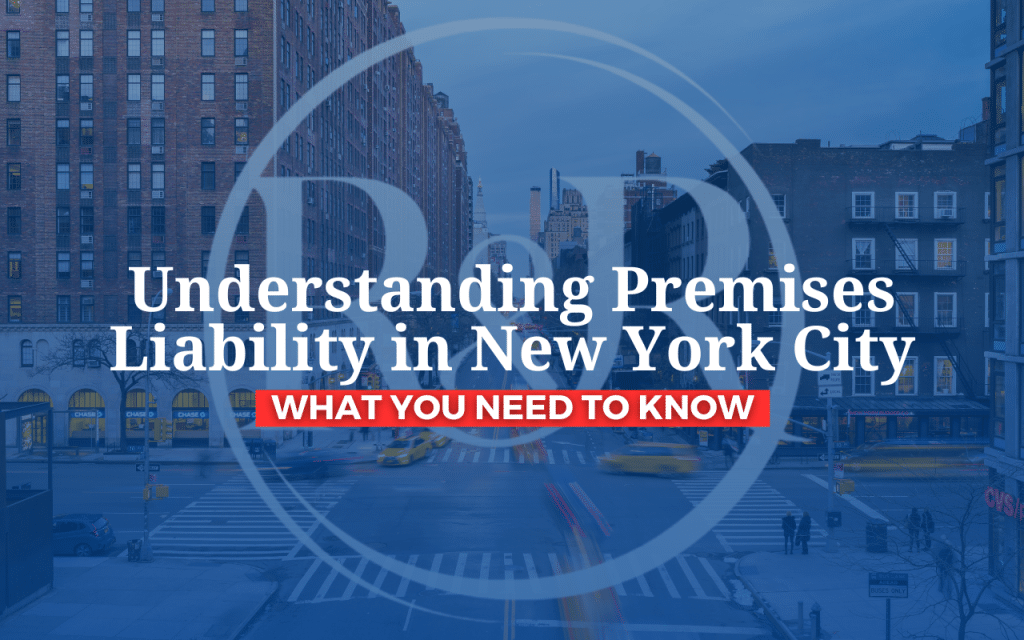When you’ve been through a traumatic event, dealing with the aftermath can be almost as challenging as the event itself. If the situation involves an insurance claim, the stress can be compounded by the behavior of the insurance company. Many people wonder, “Can I sue my insurance company for emotional distress?” At Rosenberg & Rodriguez, a personal injury law firm in New York, we understand the complexities surrounding this question and aim to provide you with the insights you need.
Understanding Emotional Distress
Before exploring the legal avenues, it’s important to understand what constitutes emotional distress. Emotional distress can manifest in various ways, including:
- Anxiety
- Depression
- Sleeplessness
- Loss of appetite
- Post-traumatic stress disorder (PTSD)
These symptoms can be debilitating and significantly impact your quality of life. When dealing with an insurance company, emotional distress can arise from various situations, such as:
- Denial of a legitimate claim
- Delays in claim processing
- Unfair settlement offers
- Poor communication from the insurance company
Legal Grounds for Suing an Insurance Company
In New York, there are certain legal grounds on which you can sue your insurance company for emotional distress. These typically fall under the umbrella of bad faith insurance practices. Here are some common scenarios:
Breach of Contract
Your relationship with your insurance company is governed by a contract. If the company fails to fulfill its obligations under that contract, you may have grounds for a lawsuit. Examples include:
- Refusing to pay a legitimate claim
- Delaying payment without a valid reason
- Offering significantly less than the claim’s value
Bad Faith Practices
Insurance companies are required by law to act in good faith when handling claims. If they engage in bad faith practices, you may have a case for emotional distress. Bad faith practices can include:
- Misrepresenting policy terms
- Failing to conduct a thorough investigation
- Denying a claim without a reasonable basis
- Failing to provide a timely response
Negligence
In some cases, an insurance company’s actions may be considered negligent. Negligence occurs when the company fails to exercise reasonable care in handling your claim. For example, if an insurance adjuster makes errors that lead to a delayed or denied claim, this could be grounds for a lawsuit.
Intentional Infliction of Emotional Distress
In rare cases, you may be able to sue for intentional infliction of emotional distress. This requires proving that the insurance company’s actions were:
- Extreme and outrageous
- Intentional or reckless
- Directly caused your emotional distress
Steps to Take Before Suing Your Insurance Company
Before taking legal action, it’s important to take several steps to strengthen your case:
Document Everything
Keep detailed records of all interactions with your insurance company. This should include:
- Emails and letters
- Phone call logs
- Notes from meetings or conversations
Seek Medical Help
If you are experiencing emotional distress, seek help from a mental health professional. Not only will this provide you with the support you need, but it will also serve as evidence in your case.
Consult a Personal Injury Attorney
Navigating a lawsuit against an insurance company can be complex. Consulting a personal injury attorney experienced in bad faith insurance claims can provide you with the guidance you need.
How Rosenberg & Rodriguez Can Help
At Rosenberg & Rodriguez, we specialize in handling bad faith insurance claims in New York. Our team of experienced attorneys understands the emotional toll that these situations can take and is committed to helping you seek justice. Here’s how we can assist you:
Case Evaluation
We offer a free initial consultation to evaluate your case. During this meeting, we’ll review your insurance policy, the details of your claim, and any evidence of bad faith practices.
Legal Representation
If we determine that you have a viable case, we’ll provide you with comprehensive legal representation. This includes:
- Gathering evidence to support your claim
- Negotiating with the insurance company
- Filing a lawsuit if necessary
- Representing you in court
Compassionate Support
We understand that dealing with emotional distress can be challenging. Our team is committed to providing you with compassionate support throughout the legal process. We’ll keep you informed at every stage and work to achieve the best possible outcome for your case.
Potential Outcomes of a Lawsuit
Suing your insurance company for emotional distress can result in several potential outcomes, including:
Compensation for Emotional Distress
If your lawsuit is successful, you may be awarded compensation for your emotional distress. This can help cover costs related to:
- Therapy and counseling
- Medication
- Lost wages due to inability to work
Punitive Damages
In cases involving particularly egregious behavior by the insurance company, you may be awarded punitive damages. These are designed to punish the company and deter similar behavior in the future.
Policy Changes
In some cases, a successful lawsuit can lead to changes in the insurance company’s policies and practices. This can help prevent other policyholders from experiencing similar issues.
Real-Life Case Studies
To better understand the potential for success in suing an insurance company for emotional distress, let’s look at some real-life case studies:
Case Study 1: Denied Homeowner’s Insurance Claim
A New York homeowner experienced severe emotional distress after their insurance company denied a legitimate claim for fire damage. The denial was based on a misinterpretation of the policy terms. Rosenberg & Rodriguez took on the case, proving that the denial was made in bad faith. The homeowner was awarded compensation for emotional distress and punitive damages.
Case Study 2: Delayed Auto Insurance Claim
A driver in New York faced significant delays in receiving compensation for a car accident claim. The insurance company’s lack of communication and repeated requests for unnecessary documentation led to severe anxiety and depression. Rosenberg & Rodriguez successfully sued the insurance company, resulting in a settlement that covered the driver’s emotional distress and therapy costs.
Case Study 3: Unfair Health Insurance Settlement
A New York resident experienced emotional distress after their health insurance company offered an unreasonably low settlement for a necessary medical procedure. The stress of not knowing whether they could afford the procedure exacerbated their condition. Rosenberg & Rodriguez proved that the insurance company acted in bad faith, resulting in a favorable settlement for the client.
Frequently Asked Questions
Can I Sue for Emotional Distress if My Claim Was Eventually Approved?
Yes, you can still sue for emotional distress even if your claim was eventually approved. If the insurance company’s actions during the process caused you significant emotional distress, you may have a valid case.
How Long Do I Have to File a Lawsuit?
In New York, the statute of limitations for filing a bad faith insurance claim typically ranges from one to six years, depending on the specifics of your case. It’s important to consult with an attorney as soon as possible to ensure you don’t miss the deadline.
What Evidence Do I Need to Prove Emotional Distress?
To prove emotional distress, you’ll need evidence such as:
- Medical records from a mental health professional
- Testimony from family and friends
- Documentation of interactions with the insurance company
Get Started Today: Call Rosenberg & Rodriguez
Dealing with an insurance company can be challenging, especially when their actions cause emotional distress. If you find yourself in this situation, know that you have legal options. At Rosenberg & Rodriguez, we’re here to help you navigate the complexities of suing your insurance company for emotional distress. With our expertise and commitment to justice, we’ll work tirelessly to achieve the best possible outcome for your case.
If you’re experiencing emotional distress due to an insurance company’s actions, don’t hesitate to reach out to us. Contact Rosenberg & Rodriguez today for a free consultation and take the first step toward reclaiming your peace of mind.




